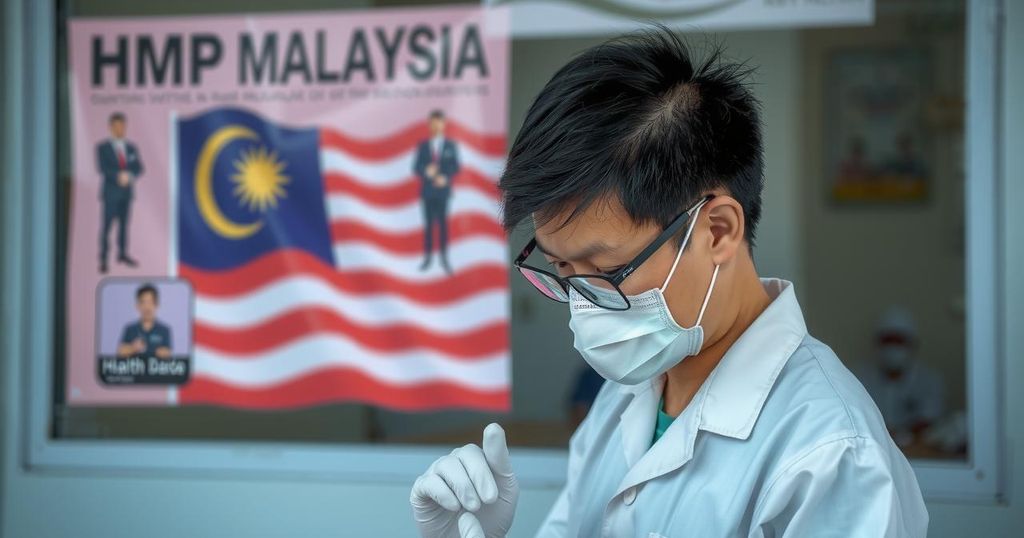Malaysia Reports Rising HMPV Cases: Health Ministry Issues Advisory
Malaysia has seen an increase in Human Metapneumovirus (HMPV) cases. The Health Ministry has issued advisories urging the public to maintain hygiene, wear masks, and practice respiratory etiquette. HMPV, which has been identified since 2001, primarily affects young children and vulnerable adults. The virus spreads through respiratory droplets and contact, making hygiene critical in preventing its transmission.
Recently, Malaysia has witnessed a notable increase in cases of Human Metapneumovirus (HMPV), prompting the Health Ministry to issue preventive advisories to the public. Citizens are urged to engage in preventive measures such as consistent handwashing, wearing masks, and implementing proper respiratory hygiene. The ministry emphasized the importance of maintaining health especially in crowded environments, and for those traveling to areas where the virus may be prevalent. It is crucial to acknowledge that HMPV is not a newly identified virus, as it has been recognized since 2001, and is part of the Pneumoviridae family, which also includes the respiratory syncytial virus (RSV).
HMPV is known to primarily affect the respiratory system, leading to symptoms akin to those of the common cold or flu. Vulnerable populations include young children, particularly infants, older adults, and individuals with chronic health conditions or weakened immune systems. The virus spreads through respiratory droplets and close contact, with its prevalence peaking in specific seasons. To prevent infection, the public is advised to adopt stringent hygiene practices, avoid touching their face, and stay home if feeling unwell.
In conclusion, the Malaysian government is taking proactive steps to address the rising HMPV cases. By encouraging preventive measures among the public, the aim is to mitigate the spread of the virus and protect the health of vulnerable populations. Awareness and action are essential as we navigate through this respiratory illness, with recognition that it is an ongoing health concern, not a new emergence. The directive serves as a vital reminder of the importance of health vigilance, especially in enclosed and crowded environments as the virus circulates.
Human Metapneumovirus (HMPV) was first discovered in 2001 and is classified under the Pneumoviridae family, the same family that includes the more commonly known respiratory syncytial virus (RSV). HMPV is predominantly a respiratory virus that can lead to both upper and lower respiratory infections with symptoms often resembling those of cold or flu. It primarily affects children under five years, particularly infants, along with older adults and people with existing health issues. Generally, HMPV is known to temporarily circulate with seasonal peaks, thus posing a public health concern that requires ongoing monitoring and preventive measures.
In summation, the rise in HMPV cases in Malaysia underscores the necessity for public vigilance and adherence to health advisories. The Malaysian Health Ministry’s proactive stance encourages preventative practices that can significantly reduce transmission rates. Though HMPV is not a novel virus, its impact on vulnerable populations necessitates the community’s collective responsibility to maintain public health through effective hygiene measures and awareness.
Original Source: m.economictimes.com




Post Comment